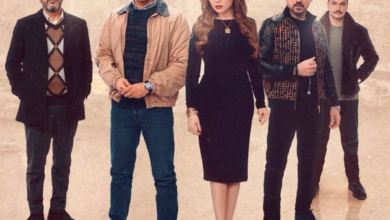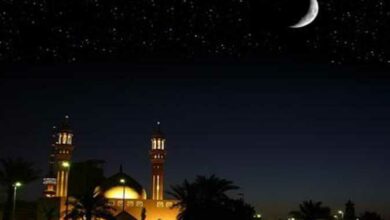
Fyodor Dostoyevsky’s last novel, “The Brothers Karamazov,” is not only a literary classic; it is also a prominent work in the history of humanity.
Austrian psychoanalyst Sigmund Freud used the novel’s characters to explain the Oedipus complex, and German philosopher Martin Heidegger said that it was a source for his 1927 book “Being and Time.” Hence, it is common to find adaptations of Dostoyevsky’s novel every once in a while.
In Egypt, it is no different, with several theatrical adaptations and a 1974 film directed by Hossam Eddine Mostafa, which came off more like an Egyptian version of the 1958 MGM production rather than a cinematic adaptation of Dostoyevsky’s text. This Ramadan, screenwriter Sherif Helmy re-presents the novel in the TV show “Al-Ikhwa A’da.”
Whereas readers are often disappointed when their favorite novels are turned into films and TV shows, the first question that comes to mind while following the current Egyptian series is: Where is Dostoyevsky?
“Al-Ikhwa A’da” is about businessman Sayed al-Daqqaq and his five children from three different wives. What we immediately sense is how much they all resent one another. The father hates his eldest son, Kamal, who does not live with the family, while Kamal feels that the father owes his mother all his riches. There is also Youssef, who works with his father, but also competes with him in business and over women.
Ehab is the intellectual journalist who is indifferent to what happens with his family, and the epileptic and stammering Wahid is maltreated by his father. As for the daughter, Sammar, we still do not know much about her, apart from her being a university student.
Although the huge original novel can offer various plots for the TV drama, the one Helmy presents seems very different from “The Brothers Karamazov.” Some characters were neglected, while many others were invented into the plot for no obvious reason.
Alyosha, the compassionate younger brother who grew up in a monastery in the novel, is missing from the TV show, although he could have been easily adapted into a locally relevant religious character that would appeal to TV viewers.
Journalist Ehab, who is meant to represent Ivan Karamazov, is only entangled in fighting prevalent corruption in Egypt, while his rationalist views of the world and struggle with existential questions are totally absent. The character comes off pale and simplistic. He does not declare himself a nationalist or socialist, but covers his bedroom walls with posters of Che Guevara and the late Egyptian President Gamal Abdel Nasser.
In the absence of Alyosha and the distinguishable characteristics of Ivan, “Al-Ikhwa A’da” misses one of the cornerstones of Dostoyevsky’s novel: the modern human dilemma between being a moralist or being completely faithless and justifying all actions, including crime.
Tackling philosophical issues of faith in creative works is often risky territory in Egypt. The Egyptian General Book Organization published a complete 1,400-page Arabic translation of “The Brothers Karamazov” by Samy al-Drooby two years ago. But when it comes to a highly accessible medium like television, the stakes can be too high. And perhaps that is why the TV adaptation turned into the common family drama type.
But “Al-Ikhwa A’da” also suffers from many common problems of Egyptian TV dramas. There is no strict dramatic line. There are too many secondary plots with scenes shot in random places such as China and Sharm el-Sheikh. Several unnecessary characters that did not exist in the original novel are introduced, and actors’ performances of the main characters are generally weak and traditional.
Salah al-Saadany, who stars as the buffoon and philandering Fyodor Pavlovich Karamazov, comes off as an exhausted and stereotypical character, while Ahmed Rizk, who plays the character of the half-intellectual epileptic Smerdyakov, seems very boring, especially with his unnaturally slow stammering.
The only noticeable performance in the episodes shown so far is that of Fathy Abdel Wahab, whose character did not exist in “The Brothers Karamazov.”
Unfortunately, screenwriter Helmy and director Mohamed al-Nokkaly miss yet another chance to introduce such a great novel to the Egyptian audience. Even when compared with the 1970s film, “Al-Ikhwa A’da” comes off less bold and dramatic.
This piece was originally published in Egypt Independent's weekly print edition.




